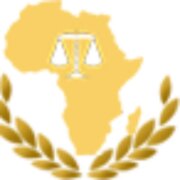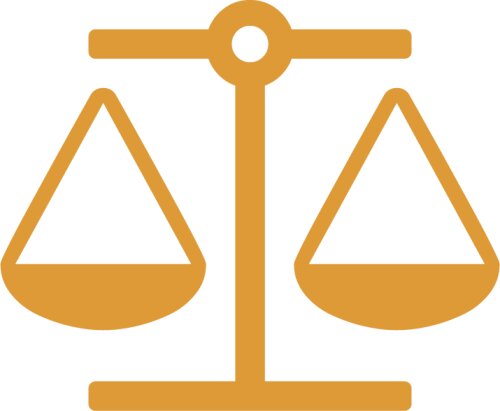Best Biotechnology Lawyers in Kinshasa
Share your needs with us, get contacted by law firms.
Free. Takes 2 min.
List of the best lawyers in Kinshasa, DR Congo
About Biotechnology Law in Kinshasa, DR Congo
Biotechnology in the Democratic Republic of the Congo (DR Congo), particularly in its capital, Kinshasa, is a growing field that touches many aspects of life, including agriculture, environmental care, pharmaceuticals, and even law enforcement. The legal framework covering biotechnology in Kinshasa is still developing, with laws, regulations, and guidelines surrounding genetic modification, bio-safety, and the ethical use of biological data still undergoing refinement and implementation.
Why You May Need a Lawyer
As with any innovative technology, biotechnology's complex nature often brings up legal and ethical questions. This complexity can warrant the need for legal assistance in situations like drafting agreements for biotechnological research collaborations, patenting biological inventions, comprehension and adherence to bio-safety laws and regulations, handling disputes over genetic resources, or ethical considerations in biotechnological applications. A lawyer with a deep understanding of biotechnology and the applicable legal provisions can significantly aid in navigating these complexities and avoiding legal complications.
Local Laws Overview
The legal landscape relevant to biotechnology in DR Congo is mainly covered by the country's constitution, the law for the protection of biodiversity, and various regional agreements the country is part of, such as the Cartagena Protocol on Biosafety. These laws and agreements mostly aim at the conservation and sustainable use of biological diversity, responsible use of genetically modified organisms, and the fair and equitable sharing of the benefits arising out of the utilization of genetic resources. However, since the field is continually developing, there can be gaps in the legal framework that need careful navigation.
Frequently Asked Questions
1. Can anyone patent a biotechnological invention in DR Congo?
While it is possible, the invention must satisfy several requirements including novelty, inventive step, and industrial applicability. It's advisable to seek legal assistance to ensure a successful patent application.
2. Is genetic modification allowed in DR Congo?
Genetic modification is allowed, but it is heavily regulated for reasons of biodiversity conservation and human health safeguards. Compliance with bio-safety regulations is a must.
3. How are disputes over genetic resources handled?
Disputes are normally handled in line with the provisions of the relevant agreements, but legal help may be required to interpret and apply these provisions correctly.
4. Is the commercialization of genetically modified organisms allowed in DR Congo?
The commercialization of genetically modified organisms is allowed but is subject to strict regulations, including a thorough risk assessment and approval by the relevant authority.
5. How is the illicit use of biological data treated under DR Congo's law?
Illicit use of biological data can lead to civil or criminal sanctions depending on the nature and severity of the violation.
6. Are biotechnological products subject to standardization?
Yes, biotechnological products, particularly those meant for human consumption, are subject to strict standards to protect public health and the environment.
7. What are the penalties for breaching biotechnology laws?
Penalties for breaching biotechnology laws in DR Congo can range from fines to imprisonment depending upon the severity of the violation.
8. Is DR Congo part of any international biotechnology agreements?
Yes, DR Congo is part of several international agreements related to biotechnology, including the Cartagena Protocol on Biosafety.
9. Can I bring a biotechnology dispute to international courts?
In certain circumstances, especially when the dispute involves parties from different jurisdictions or international law, it may be possible. A biotechnology lawyer can advise you regarding this.
10. Is there mandatory disclosure of the origin of genetic resources in patent applications?
DR Congo stipulates the disclosure of origin of genetic resources and/or associated traditional knowledge in patent applications, following certain international agreements.
Additional Resources
For more detailed information and guidance, it's advisable to consult the national laws, guidelines, and regulations related to biotechnology in DR Congo. The Ministry of Environment and Sustainable Development, the National Institute for Biotechnology, and the Agency for Biosecurity are also useful sources of information.
Next Steps
If you need legal assistance in biotechnology in Kinshasa, it's advisable to begin by consulting with legal professionals experienced in DR Congo's biotechnology law. These professionals can provide legal advice, assist with the interpretation and application of biotechnology laws, and represent your interests adequately whether in contract negotiations, patent applications, compliance matters, or dispute resolutions.
Lawzana helps you find the best lawyers and law firms in Kinshasa through a curated and pre-screened list of qualified legal professionals. Our platform offers rankings and detailed profiles of attorneys and law firms, allowing you to compare based on practice areas, including Biotechnology, experience, and client feedback.
Each profile includes a description of the firm's areas of practice, client reviews, team members and partners, year of establishment, spoken languages, office locations, contact information, social media presence, and any published articles or resources. Most firms on our platform speak English and are experienced in both local and international legal matters.
Get a quote from top-rated law firms in Kinshasa, DR Congo — quickly, securely, and without unnecessary hassle.
Disclaimer:
The information provided on this page is for general informational purposes only and does not constitute legal advice. While we strive to ensure the accuracy and relevance of the content, legal information may change over time, and interpretations of the law can vary. You should always consult with a qualified legal professional for advice specific to your situation.
We disclaim all liability for actions taken or not taken based on the content of this page. If you believe any information is incorrect or outdated, please contact us, and we will review and update it where appropriate.











